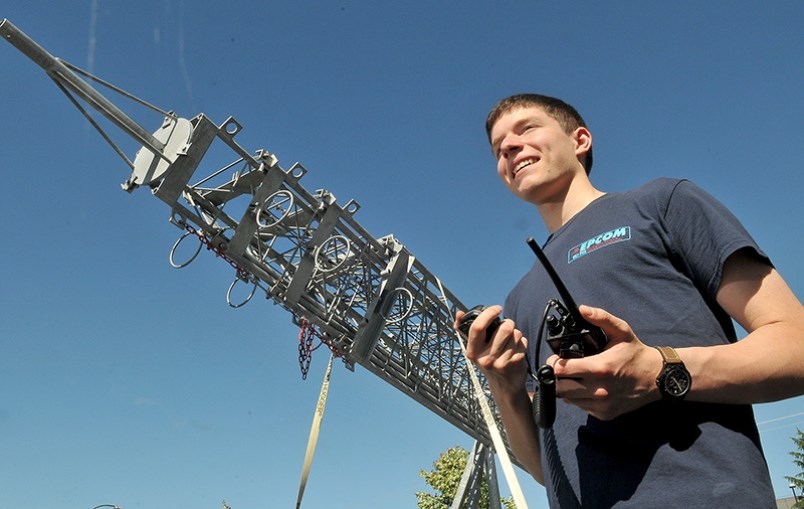Most teens Tyler Cristiano’s age are glued to their smart phones.
But this 18-year-old university student is just as captivated by ham radios as he is with the ubiquitous smartphone and, on the weekend of June 22, he’ll be demonstrating his knowledge and skill in an international competition at Castle Park in Port Coquitlam.
Called the ARRL Field Day, the event is open to the public and will involve ham radio operators communicating with one another from remote sites all over North America, with groups racking up points for the number and type of group they reach over a 24-hour period.
Field Day has been an annual event since 1933 and remains the most popular happening in the ham radio world, according to ARRL, the national association for amateur radio.
For Cristiano, who will be taking part along with about 20 other members of the Port Coquitlam amateur radio group, the event is an opportunity to compete for top honours but also a chance to demonstrate how ham radios will be used in an emergency.
“Field day allows us to test all our radio devices, and basically the event simulates what it would be like in an actual disaster or emergency,” he told The Tri-City News.
Since he was 14, the PoCo resident has had an amateur radio licence, which allows him to also be part of the city’s emergency response plan.
If an earthquake, flood or other disaster were to occur, knocking out power throughout the city, ham radio operators such as Cristiano would be tasked with communicating with authorities via radio frequencies, using ham radios running on power from generators.
These radios are located at important PoCo facilities, such as the recreation complex and city hall, and would likely require 24-hour monitoring.
Field Day at Castle Park replicates these conditions, as operators take turns on the radios, working shifts throughout the day and night, on equipment run on generator power rather than the city’s electricity grid.
“That simulates what it would be like in a real emergency, if the power lines went down,” said Cristiano, who, as the youngest member of the group, expects to be the operator who takes the late night shift.
The Riverside grad who is taking technical theatre courses at Capilano University said he first got interested in ham radios when his mom became involved with PoCo's emergency preparedness program.
“At that age, I thought it was fascinating you could talk to people pretty much across the world, just over the radio. It wasn’t internet, email or phone call or texting,” he said.
Now, he hopes Field Day inspires other people to take emergency planning seriously, through their fascination with this old-style but still important technology.
• Field day in PoCo will run June 22 and 23, with the public encouraged to visit on the Saturday from 11 a.m. to 4 p.m.



